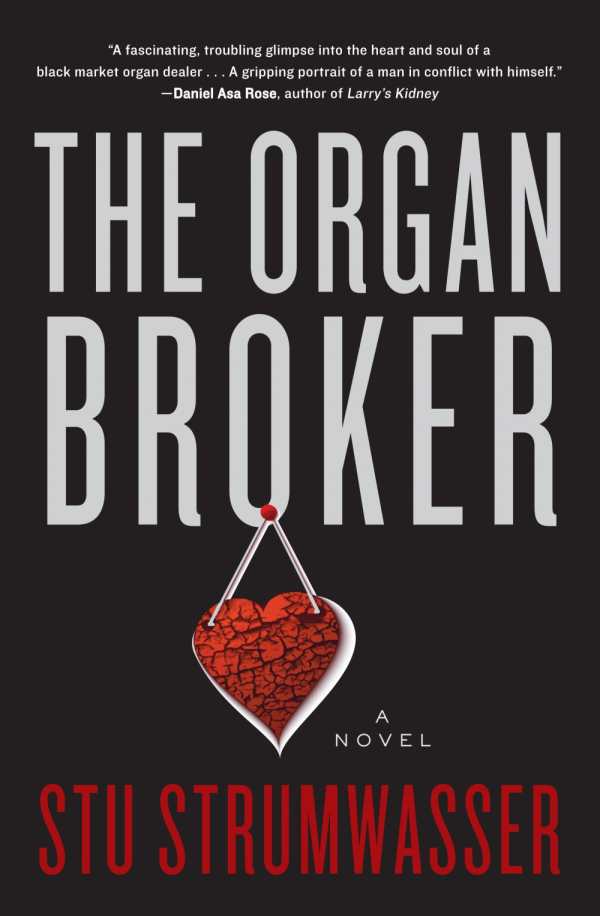The Organ Broker
The moral dilemmas of a black market organ dealer enliven this smart thriller.
“There is no shortage of organs; there is only a shortage of organs in America.” The antihero of Stu Strumwasser’s first novel finds organs on the international market and sells them for huge profits to Americans on transplant waiting lists. With snappy dialogue and a lovable hustler protagonist, The Organ Broker explores ethical ambiguities in an absorbing plot.
Jack Trayner left behind his abusive childhood and drug dealing college years to attend NYU law school. When an acquaintance in renal failure petitioned Jack to find him a kidney, though, he returned to his criminal past. Now he mainly procures kidneys and livers from South Africa. Frequent name changes and cell phone swaps mean that Jack has trouble maintaining relationships. When Mark, the son he never knew, comes into his life, Jack receives his most difficult assignment yet: finding a donor heart for an AIDS patient.
“Kidney Jack,” as he is known in South Africa, is an appealingly flawed hero with conflicting motivations; “I wasn’t just doing it for the money … I was saving lives,” he tries to convince himself. Italicized sections convey Jack’s more introspective deliberations, creating a nuanced character portrait. He is seriously considering bumping off his business partner, Wallace Kendrickson, and demolishing the very organ ring he created, and after Mark and Philip enter the picture his thoughts turn more and more to altruism and self-sacrifice.
The various plans to get Philip’s new heart make for an engrossing plot, with Vinny Pearl, an FBI special agent, and Wallace functioning as the angel and devil on Jack’s shoulders. Strumwasser raises awareness about organ donation in his acknowledgments and afterword sections, but the message is never too in-your-face. “Who’s to say that the parts contained within your body remain somehow your property, or the property of your descendants, after your death?” Jack asks.
With 120,000 Americans currently on waiting lists for organs, and only half of that eligible registered as donors, the situation is critical. The author proposes presumed consent (i.e., organ donation is the norm, and one must opt out) and binding consent (family members cannot override a patient’s wishes) as two ways of approaching the crisis.
The slick prose, especially the dialogue, makes the novel resemble classic noir. Along with snatches of Afrikaans and sections of second-person address, this elevates the writing quality above what is typically found in crime fiction. Strumwasser keeps readers guessing about Jack’s loyalties and how the central challenge will resolve itself. Recommended for fans of thrillers that tackle weighty societal issues, such as books by John Grisham, John le Carré, and Richard North Patterson.
Reviewed by
Rebecca Foster
Disclosure: This article is not an endorsement, but a review. The publisher of this book provided free copies of the book and paid a small fee to have their book reviewed by a professional reviewer. Foreword Reviews and Clarion Reviews make no guarantee that the publisher will receive a positive review. Foreword Magazine, Inc. is disclosing this in accordance with the Federal Trade Commission’s 16 CFR, Part 255.

